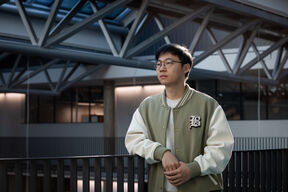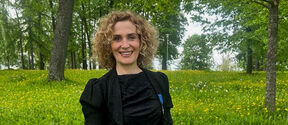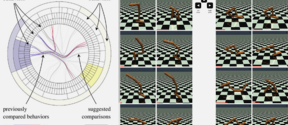Haoye Tian: I want to build trustworthy AI-driven software tools

What do you research?
I study the intersection of software engineering and artificial intelligence (AI), with a focus on software maintenance, program repair and code assessment. My work explores code representation learning, automated patch generation and evaluation and methods for detecting and fixing bugs and vulnerabilities.
By combining large language models and software engineering techniques, I aim to create automated, reliable and trustworthy tools that improve the correctness, security and maintainability of real-world software systems.
Why are you interested in this topic?
I’m motivated by both the promise and the risks of applying large language models to software maintenance. These models, trained on massive code corpora, already power tools like Copilot and show remarkable potential to accelerate bug detection and repair. However, pre-training on general code does not equip them with the specialised reasoning required for complex, real-world program repair.
Modern software systems evolve rapidly at the repository scale, where changes span multiple files and dependencies, making it easy for large language models to hallucinate, miss subtle security flaws, or produce patches that look correct but fail in practice.
This gap between their impressive capabilities and their current reliability limits developer trust and hinders adoption. It is precisely this tension—the need to transform powerful but fallible models into trustworthy tools—that drives my research.
What were your previous positions?
I completed my PhD at the University of Luxembourg and carried out research visits at institutions such as Carnegie Mellon University in the USA and HKUST in Hong Kong SAR. I then did postdoctoral work at the University of Melbourne in Australia and Nanyang Technological University in Singapore. Earlier, I worked as a machine learning researcher at companies like Tencent and Didi. Academia taught me to broaden my perspectives and push the boundaries of knowledge, while industry focused me on scalability and concrete security and privacy needs—together these experiences ensure my work is both innovative and practically relevant.
What is the most important quality of a researcher?
First, curiosity: it helps you discover which problems truly interest you, and interest is the best driving force. Second, grit: the perseverance to work deeply and persist when the progress is slow. Complementing these qualities are a commitment to continuous learning and the ability to collaborate. Modern research is interdisciplinary, and steady curiosity, resilience, lifelong learning and teamwork together produce lasting, impactful results.
What are your expectations for the future?
I aim to build and lead a research group that advances both the theory and the practice of trustworthy AI-driven software maintenance. My long-term vision is to shape how large language models become dependable partners in real-world development by developing methods and tools that ensure automated repair correct, secure and interpretable. Beyond publishing papers, I want our work to inform industry standards, build bridges between academia and companies and guide how future developers are trained to use AI responsibly. Ultimately, I hope to help create an ecosystem where AI assistance is not just powerful, but reliable enough to transform how software is built and maintained worldwide.

Department of Computer Science
We are an internationally-oriented community and home to world-class research in modern computer science.
School of Science
Science for tomorrow’s technology, innovations and businesses

Read more news
A survey on users' experiences of MyKanta in collaboration between Aalto University and Kela
Senior university lecturer Sari Kujala's research group is exploring, in collaboration with Kela, users' experiences with the MyKanta online patient portal and the MyKanta mobile application.
What drives success in the film and audiovisual industries? New research to support growth and competitiveness
Aalto University Department of Film is leading a €1.6 million Co-Innovation research project, SmartSuccessAV, funded by Business Finland. The project aims to gain new research-based knowledge on how success in the Film and AV industry is managed and how decision-making is structured as production, financing, and distribution structures change.
‘My entire career as a marine biologist and sustainability scientist has been extremely interesting’
Professor of Practice Eeva Furman has spent most of her career conducting interdisciplinary research in sustainability sciences






